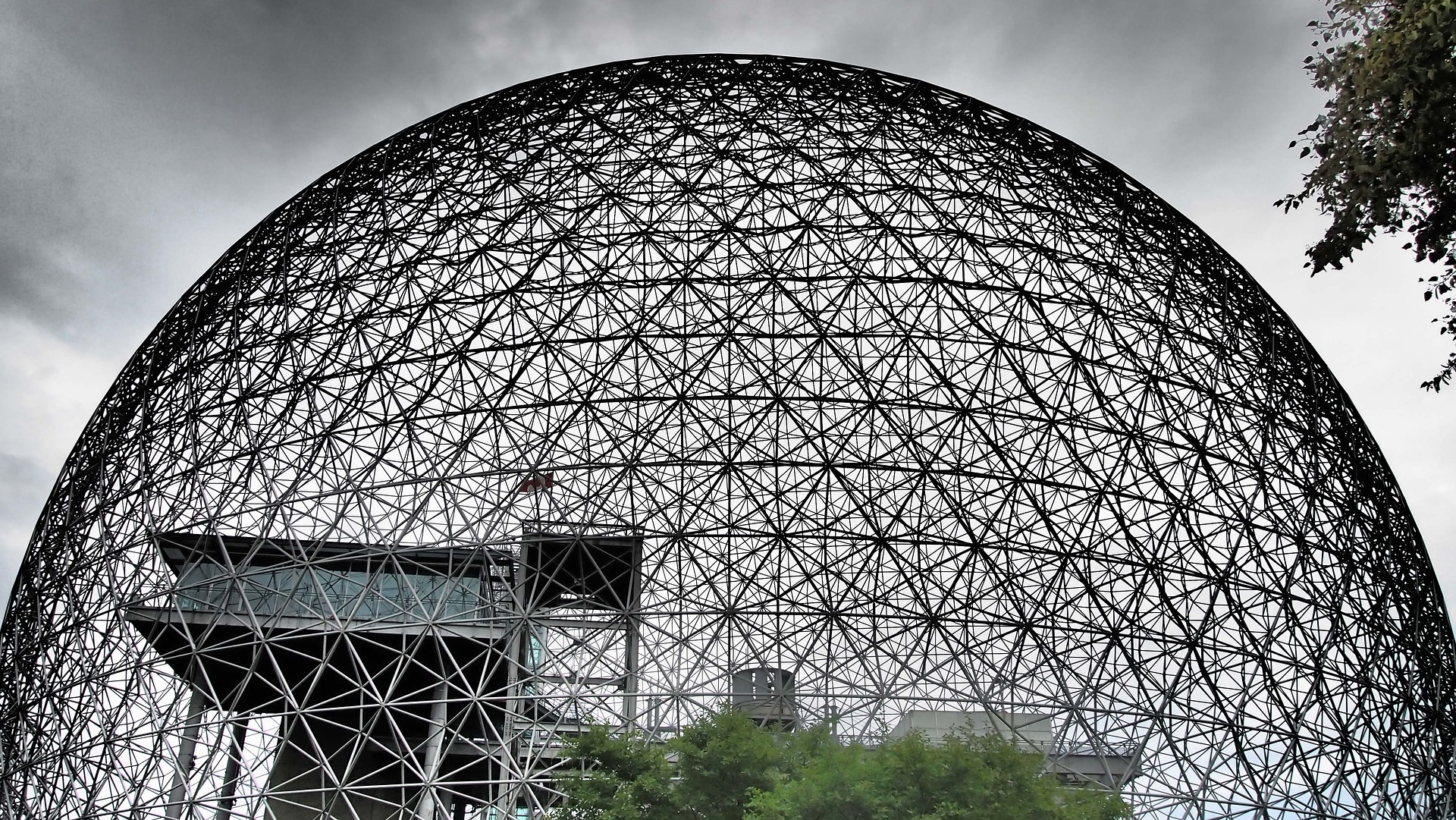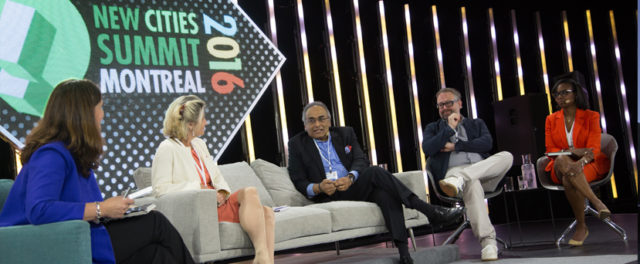
The Age of Urban Tech
September 10, 2016 — Blog
This post is part of our Age of Urban Tech discussion series, following the fifth edition of the New Cities Summit in Montréal in June 2016.
The opening conversation at the New Cities Summit, The Age of Urban Tech, assembled voices from the public and private sectors to discuss the vast potential of Urban Tech and how it might profoundly change the way we live in cities and interact around the world. Moderator Estelle Métayer distilled Urban Tech into three categories: technology fostering urban progress and innovation, technology to make urban lives simpler and smarter, and technology that makes our cities more equitable and efficient.
Chiara Corazza emphasized the dizzying rate of turnover in technological innovation. Modern cities are changing in real time, requiring innovation and talent to constantly reinvent themselves. She cited that 65 per cent of current students will work in a a job that does not yet exist. Further, 90 percent of all the data that has ever been accumulated has been collected in the past two years. Using her own city as an example, Corazza outlined how Paris is focusing on innovation incubators, such as a refurbished station that will soon host 100 new companies, adding to the 12,000 startups that already call the city home and providing 500,000 jobs.
For Anil Menon, the success of Urban Tech depends on a confluence of various actors. “No one city can transform itself on its own. It’s just not going to happen. No one company can transform a city too.” Menon went on to urge public-private partnerships as we look at cities as “living labs.” It is essential that they have local ecosystems, which include local entrepreneurs and an understanding of the local setting.
Ivy Taylor and Alexandre Taillefer would, however, put human considerations at the forefront of the conversation. Mayor Taylor insisted that we avoid “technology getting ahead of us.” Urban Tech holds boundless promise to improve quality of life and connect people to opportunities, notably when it comes to opportunities for education. She also highlighted that Urban Tech poses challenges for public policymakers, such as the disconnect between those crafting technology policies and those who have the technological knowhow. Taillefer added, “the biggest challenge our society will be facing in the next 25 years will be robotization,” suggesting that the 35 to 40 per cent of jobs being replaced by robots will disproportionately affect the middle and lower classes.
The exploratory panel Age of Urban Tech set the stage for sometimes fiery debate on the Urban Tech theme among Summit participants. The panel highlighted the great promise and great challenges technology poses for our cities.

Speakers
Chiara Corazza, Managing Director, Greater Paris Investment Agency
Anil Menon, Global President, Smart+Connected Communities, Cisco
Alexandre Taillefer, Managing Partner, XPND Capital & Founder, Téo Taxi
Ivy Taylor, Mayor of San Antonio, Texas
Moderator: Estelle Métayer, Principal and Founder, Competia
